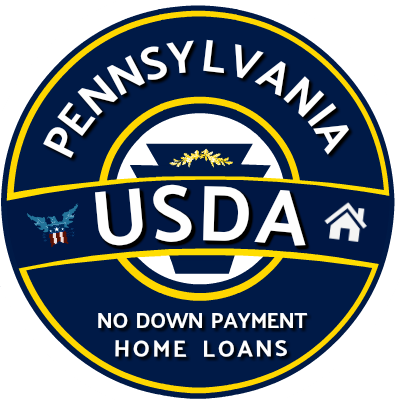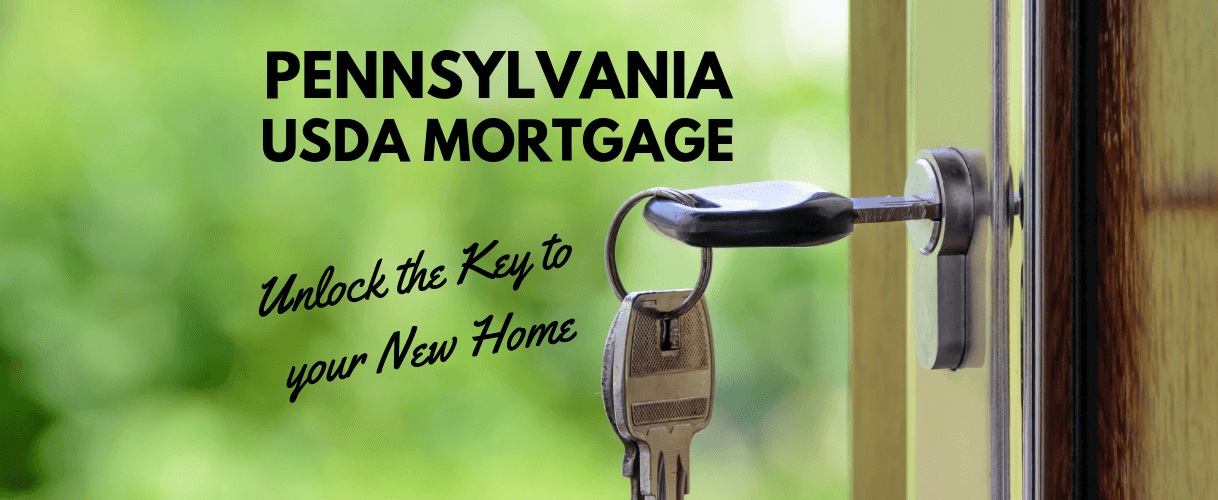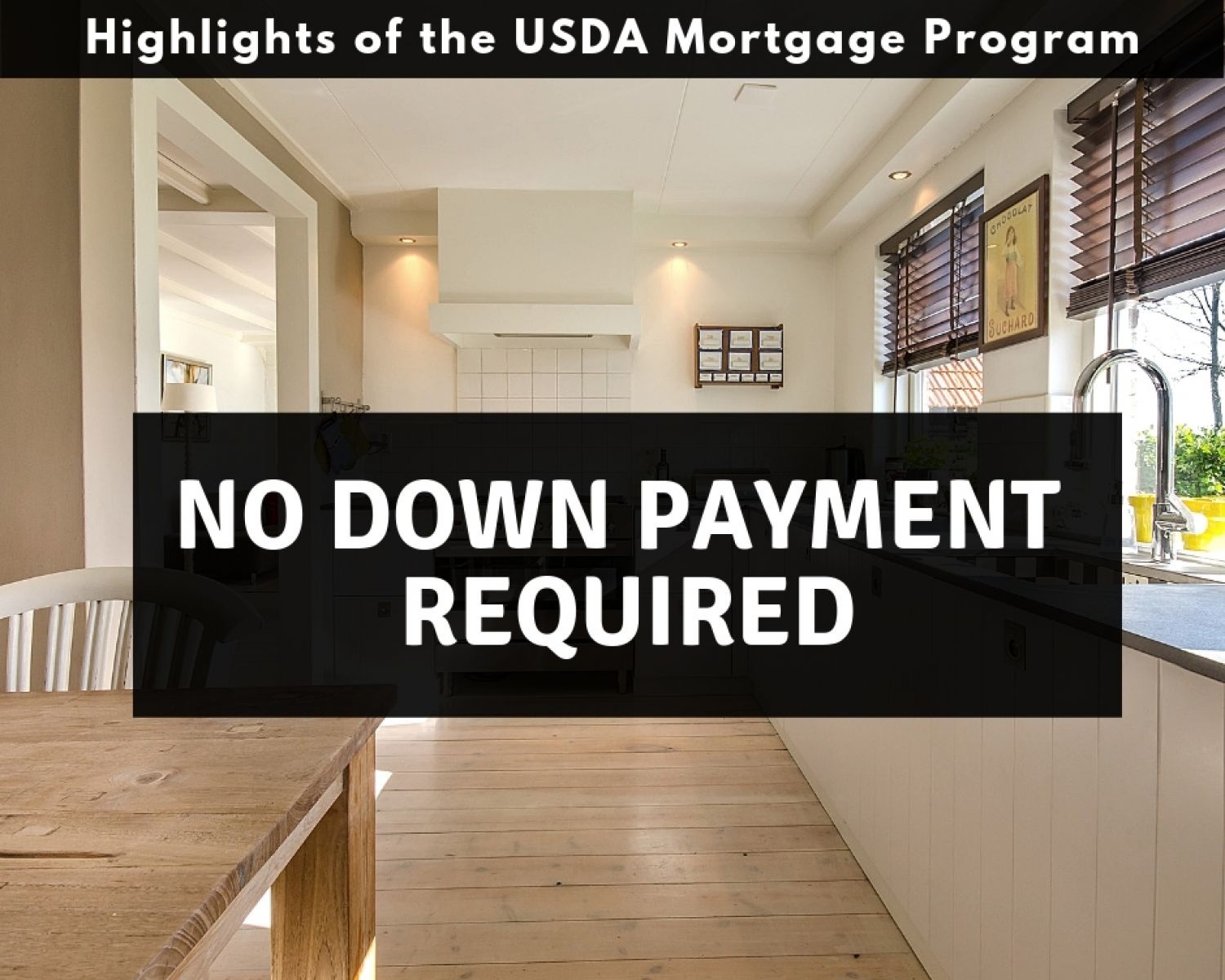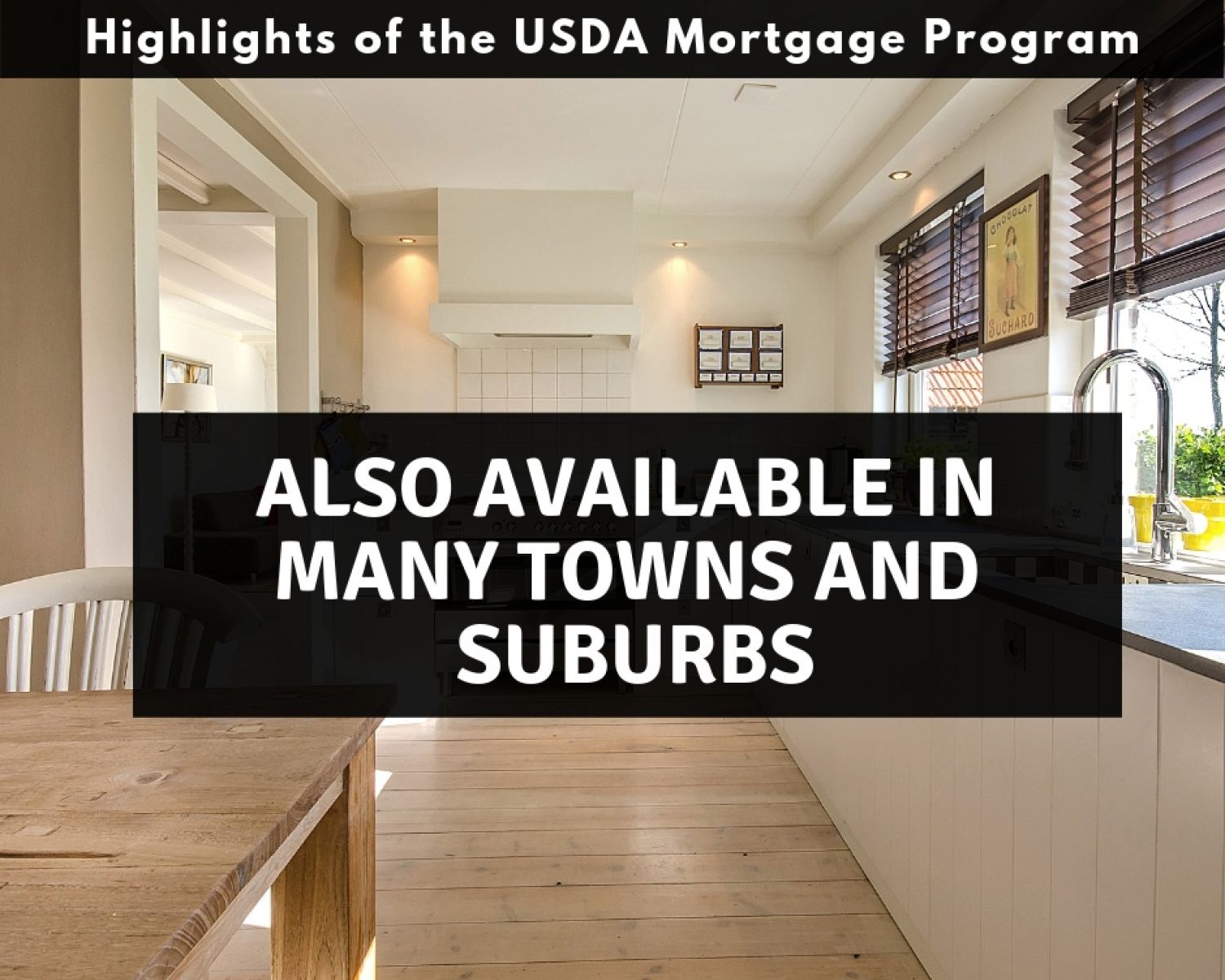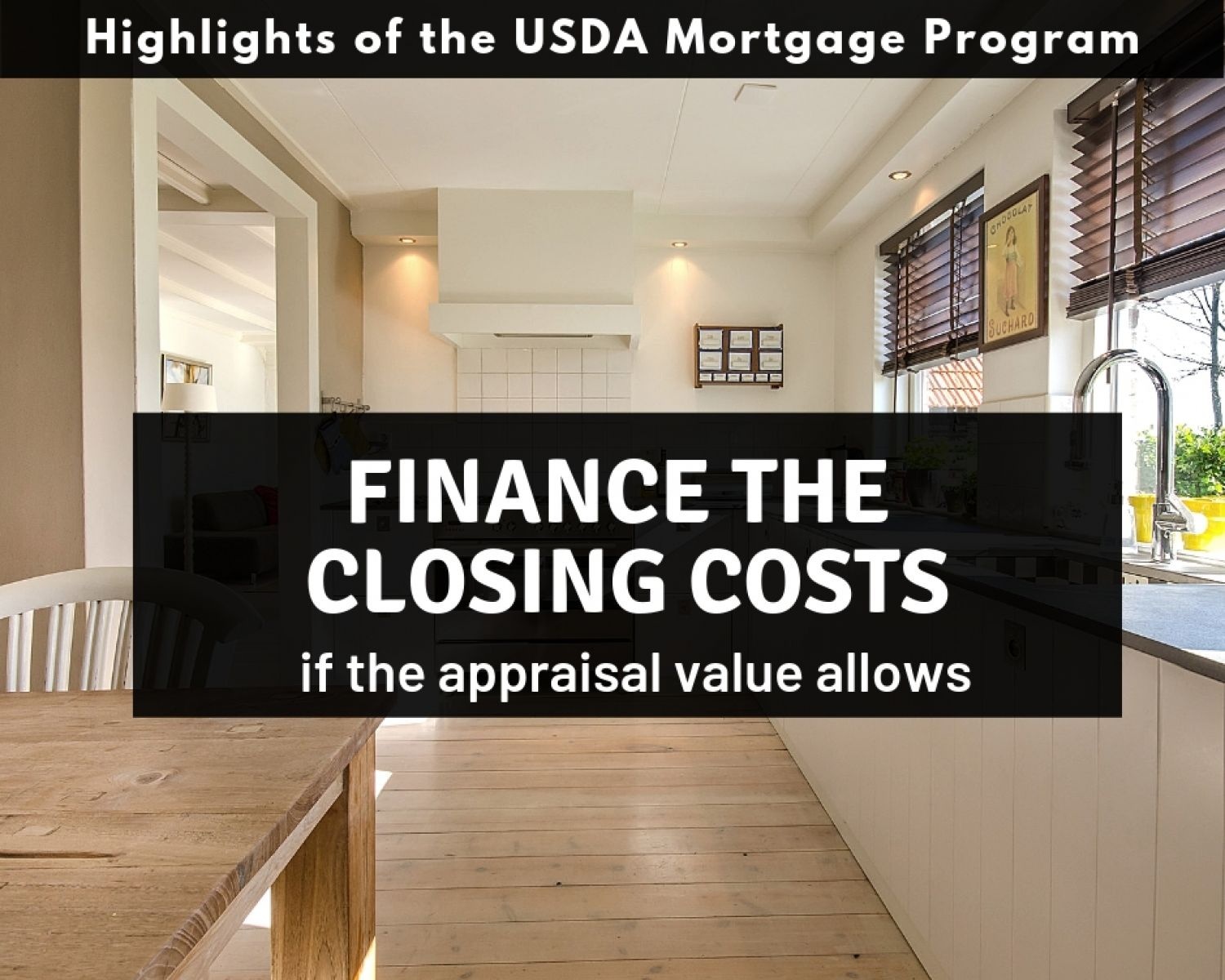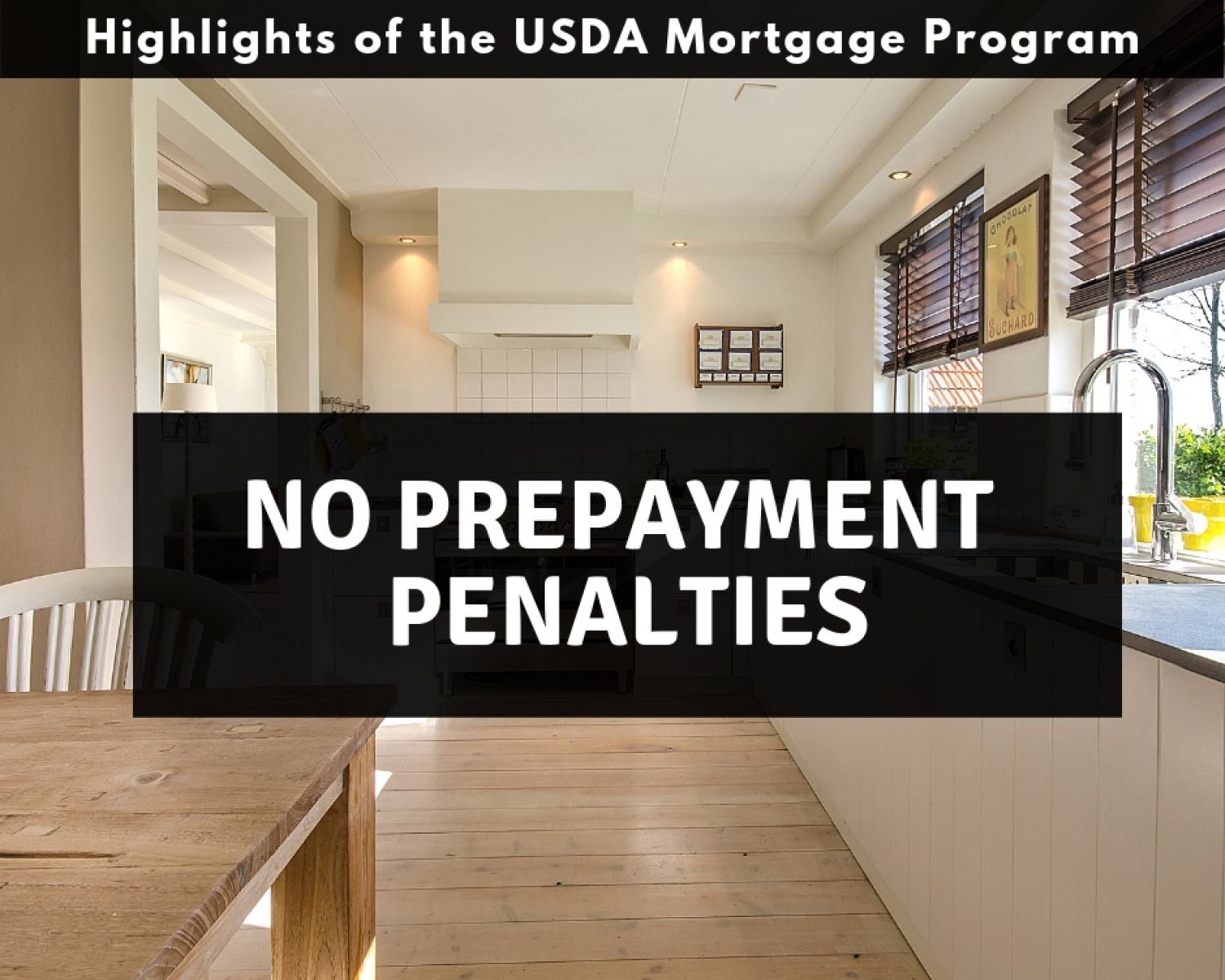The USDA Guaranteed Mortgage Program in Pennsylvania enables home buyers to purchase a home with No Down Payment required.
What is the USDA?
The USDA is the United States Department of Agriculture. This is the same Federal Government Agency that oversees the farming industry and inspects food safety.
Ok, I thought that was the case, but why does the USDA also have a Mortgage Program?
Good question, in addition to regulating farming and food safety, the USDA also supports what is known as Rural Development. As part of this support of Rural Development, the USDA has created a mortgage loan program that will allow qualified home buyers in eligible areas buy a home with No Down Payment. The USDA refers to this program as both the Rural Development Loan Program and the USDA Guaranteed Mortgage Program. Both of these programs are the same, you may see this program called by either name. The terms are interchangeable. With the USDA Guaranteed Mortgage Program, the USDA does not lend the money to you directly but they back up the mortgage or “Guarantee” the loan for lenders who offer their product. This Guarantee enables lenders to make USDA Mortgages available to the public and this Guarantee makes the program more accessible to more potential consumers. Other common government backed mortgage programs such as the VA and FHA operate in a similar manner. The USDA also has a separate program that called the USDA Direct Program. This USDA Direct Program is only for very low income levels and this program is not offered through lenders. The majority of Pennsylvania households fall within the income parameters of the USDA Guaranteed Mortgage Program.
Ok, the house must be in an eligible area. How do I know if the house I want to buy is in a USDA eligible area?
Out of the 67 Counties in Pennsylvania, Philadelphia County is the only county that is entirely ineligible for the USDA Program. Philadelphia County encompasses only the city limits of Philadelphia and is therefore too densely populated to meet USDA Eligibility requirements. 66 out of 67 Pennsylvania Counties do have USDA Eligible areas. The majority of Pennsylvania Counties are fully eligible with no ineligible areas. Others are mostly eligible, but have ineligible areas around the larger Pennsylvania cities such as Pittsburgh, Allentown, Erie, Reading, Scranton, Lancaster, Harrisburg, Altoona, York, State College, and Wilkes-Barre. Out of all of the Pennsylvania cities, only the largest metropolitan areas of Philadelphia, Pittsburgh, Allentown/Bethlehem, and Scranton/Wilkes-Barre have USDA ineligible areas that extend more than a few miles outside of the actual city limits.
To find out if your home or the home you want to buy is located in a USDA Eligible area, use the Search Box below and enter the name of your town. (You can also check the Eligible PA Counties tab in the menu at the top of every page)
You don’t have to travel too far outside of any metro area in Pennsylvania to find yourself in a USDA Mortgage Eligible area. Many areas that would not necessarily consider themselves rural but would be more accurately described as suburban, are eligible for the No Down Payment USDA Mortgage Program. Basically, if you live outside of the metro area of a Pennsylvania city, you are most likely in a USDA Eligible Area.
In addition to geographic restrictions, the USDA does require that the property be in livable condition and free of major repair.
Visit the Pennsylvania USDA Mortgage Property Guidelines section to see if the home you wish to purchase meets the requirements or contact us by phone: 717-745-8380 or email us!
I heard the USDA Mortgage Program has income restrictions?
The homebuyers will also need to be compatible with the USDA Mortgage Income Guidelines. The USDA Mortgage Program is intended for households that have what the government census data classifies as “Moderate Household Income”. This census data is organized on a county by county basis, with the majority of Pennsylvania counties classifying their maximum annual Moderate Household Income as high as $109,150. Again, this census data is accumulated for each county, so we do see some variance in what are considered areas with higher costs of living. The counties bordering the city of Philadelphia are an example of this data. Bucks County, Montgomery County, Chester County, and Delaware County all have maximum annual household income limits as high as $132,650. Households with incomes higher than the maximum USDA Mortgage Income Levels will need to apply for a different mortgage program. We can discuss these other programs with you.
The good news is that although the USDA Mortgage Program does have restrictions on maximum household income, the income limits are set at a level that allows most Pennsylvania households to qualify. Since the income levels and qualifying areas vary for each county, we have organised this site to provide data for each of Pennsylvania’s 66 USDA Eligible Counties.
Visit the Pennsylvania USDA Mortgage Income Guidelines section and choose your County to see if your Household Income meets the USDA requirements or call us at 717-745-8380. You can also fill out a brief Contact Request form at the bottom of this page to review your own situation.
Are there also restrictions on loan amounts or the sales price for homes purchased with a USDA Mortgage?
No, there are no restrictions for loan amount or for sales price when obtaining a USDA Loan. We often find that lenders using the USDA Guaranteed Mortgage Program have a minimum loan amounts of $50,000, but there is no maximum loan amount. Any minimum loan amount is determined by the lender. The USDA has no set minimum or maximum loan amount.
You mentioned qualified home buyers, what type of credit does it take to qualify?
The USDA prefers credits score of at least 640, however, they will entertain scores down to 620 if a timely mortgage or rental payment history can be documented for 12 months. Credit history should be established and decent but the USDA Credit Guidelines do allow for some minor dings to credit, such as medical collections and some past credit issues.
Do I need to be a first time homebuyer?
No, but the USDA program does not allow you to own more than one home at any given moment. If you currently own a home and wish to buy another home using the USDA Mortgage Program, then your current home must be sold on or before you close on your new USDA home. The USDA Rural Loan Program is only for Primary Residences; no second homes or investment properties. Your Realtor can help you coordinate the timing of selling your current house with purchasing your new house. Buying and selling a home on the same day is common and can be handled with greater ease than you may think.
I love that there is no down payment required, do I need any money at closing at all?
There are always natural closing costs when buying a home in Pennsylvania. These closing costs include Transfer Taxes that are paid to the State and Local governments, title insurance costs, property tax bills and homeowners insurance. Due to regional and local variances in Transfer Taxes and property taxes, the exact amount of closing costs can fluctuate based on a specific home and town, but generally we see closing costs equate to about 5% of the sales price. The USDA allows the seller to pay a maximum of 6% of the sales price towards the buyer’s closing costs in the form of Seller Assistance. As a result, we usually find that the maximum seller assist allowed by the USDA is sufficient to cover closing costs.
If the seller will not agree to pay any seller assistance, then there is an additional way that a buyer can come to the closing with no money at all. The USDA Mortgage Program is unique in that it allows homebuyers to finance any closing costs into the loan amount. The option of financing the closing costs into the loan amount depends on the appraised value. For example, if the sales price is $150,000 and the closing costs total $7,000, then in order to borrow $157,000 and therefore finance all the closing costs, the home needs to appraise for at least $157,000. The ability to finance closing costs into the loan amount on a home purchase sets the USDA Mortgage Program apart from the other major mortgage programs. This feature is what makes the USDA Mortgage Program more of a true No Down Payment program. Due to these two options of covering closing costs, most USDA purchase transactions can be structured so that the buyer brings nothing to the closing table, not even their check book.
Is the USDA Program only for home purchases or can I also use the program to refinance my house?
The USDA Guaranteed Mortgage Program can be used for refinances, but only if the current mortgage on the home is also a USDA mortgage.
Can I use the USDA Program to buy an investment property?
No, the USDA Program is only for a Primary Residence. If you do purchase a home with the USDA program, there is paperwork that you will sign which attests that you do plan on occupying the home as your primary residence for at least a year. You can buy another primary residence down the road and keep your USDA home as a rental property. The new purchase would need to be with a non-USDA program. The USDA does not allow you to have two USDA loans at once.
Key Points: Pennsylvania USDA Mortgage Program
USDA Loans do not require a Down Payment
USDA Loans allow the Seller to pay up to 6% of the sales price towards the Buyer’s closing costs
USDA Loans allow the closing costs to be financed into the loan amount, if the appraised value supports the needed loan amount
USDA Loans are only offered as 30 year fixed mortgages
USDA Loans can be paid ahead of schedule or can be paid off at any time with no prepayment penalties
USDA Loans are not only offered in rural areas
USDA Loans are often available in towns with sizable populations
USDA Loans are often available in suburbs of big cities
